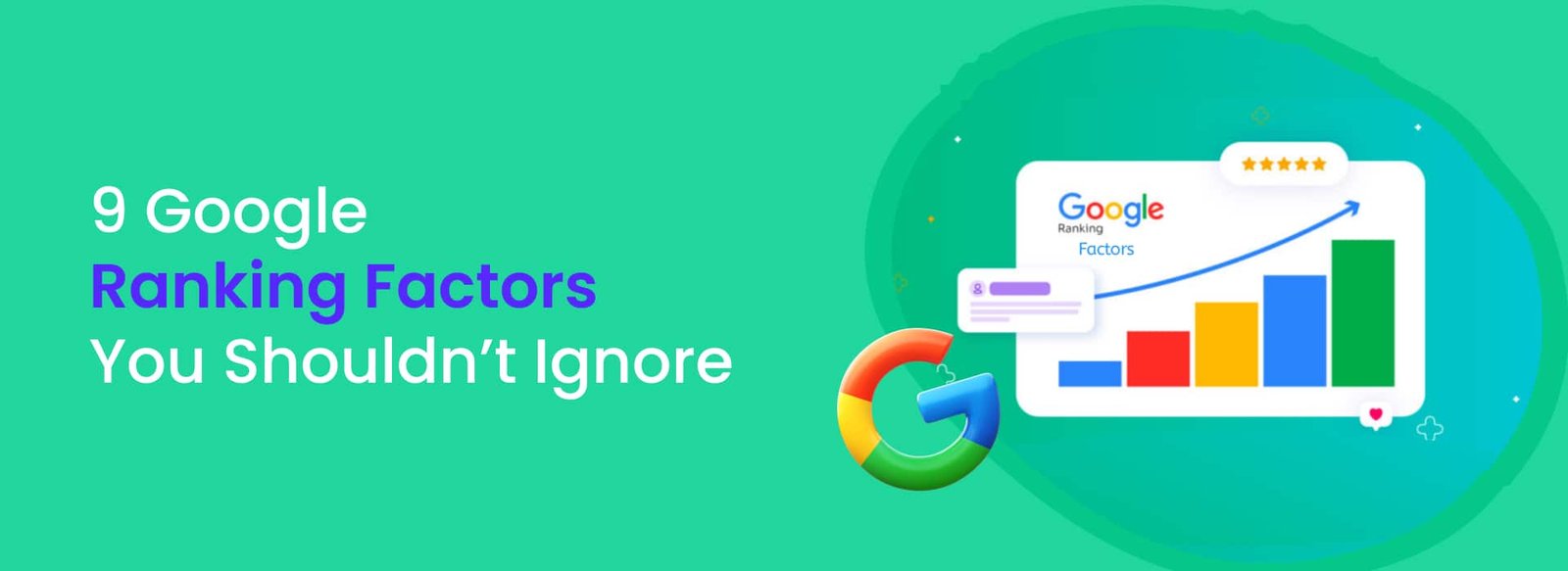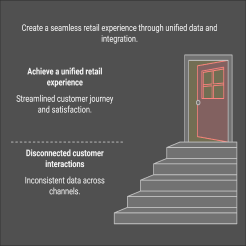
The reasons for Google’s ranking are too many to cover in full. Instead of focusing on the most critical factors, they describe everything that comes into play.
Most include misconceptions since nobody knows them entirely.
Well, let’s try something new today. Instead of boring you with the list of all the possible ranking elements (there are over 200), we’ll focus on the nine that we believe are most important.
These are the components, and there is no specific sequence to them:
- Backlinks
- Freshness
- Topical authority
- Search intent
- Content depth
- Page speed
- HTTPS
- Mobile-friendliness
- User experience
1- Backlinks
Inbound links’ number and quality are among the most crucial ranking factors.
The question is how we can be sure. Google’s ranking system, PageRank, is based on backlinks. Before you argue that PageRank is obsolete, know that Google’s Gary Illyes has stated that it is still in use as recently as 2017:
The connection between backlinks and organic traffic has been shown by many other studies, including the one that we conducted on more than a billion websites:
It’s important to note that not every backlink is the same. Many aspects contribute to the value of a backlink, but relevancy and authority are the two most crucial.
Relevance
Let’s say you need a top-notch digital marketing firm in your area. Two of your pals are consulted for their recommendations. Both are experts in their fields; one is a digital marketer, while the other is an A.I. engineer. Whose opinion do you put faith in?
That person is probably the marketer, as they have expertise in that area.
It’s the other way around if you’re in the market for cloud computing consulting services advice.
A similar concept is at work in the online world. The best links are those that come from authoritative sources.
Authority
The majority of the sway comes from backlinks on authoritative websites and pages.
Domain Rating and URL Rating in Ahrefs’ Site Explorer show the relative strength of a connecting domain and web page.
2- Freshness
It’s because freshness is a query-dependent ranking criterion, with a greater emphasis on it for specific searches than others.
Google does this because users are interested in reading breaking news stories.
Even for other types of searches, freshness is still a factor, although a secondary one.
Consider the search “best home decor in America.”
Given the infrequent nature of new home decor releases, solid advice from last month remains valid today.
Because of this, Google has no problem displaying many months-old results.
Freshness doesn’t matter for “how to lose weight quickly” since the technique never changes. A user guide is as good as a new one.
It explains why both established and brand-new websites are in Google’s top five results:
3- Topical Authority
Google gives more priority to content that comes from reliable sources, which has nothing to do with linking strategies.
The question is how we can be sure.
Take a look at the top results for “how to lose weight quickly” and their SEO metrics:
Metrics don’t provide enough information to explain why the first two results are ranked higher than the third. They exist on low-authority websites with fewer backlinks, referring domains, and UR scores.
However, when you consider the locations, you’ll see why.
The third-ranked site is a weight-loss blog covering all the bases while only offering diet supplements for sale.
These top two sites have “topical authority” or prominence in their respective fields.
Here’s still another depiction:
The first result shouldn’t be ranked higher than the second based on the metrics alone. All the standard metrics for search engine optimization show that it performs worse.
“Topic authority” is almost certainly responsible for its high placement. Its primary purpose is to clean, unlike the second-placed facility, which deals with a broader range of domestic duties.
However, in other anecdotes, is there any proof that “topical authority” has a role in rankings?
Clearly
We begin with the acronym E-A-T, which is mentioned in the Google quality rater rules. It denotes a high level of knowledge, credibility, and reliability. Believe it or not, we’re relatively sure that no website can prove these three things for every issue.
The E-A-T acronym is mentioned in the Google Search Quality Rater Guidelines. It is shorthand for knowledge, authority, and reliability. It seems insane, but we’re sure that not even the most comprehensive website can prove these three facts for every single issue.
Cultivate a reputation for expertise and trustworthiness in a specific area.
Furthermore, there will be more internal linkages between pages on the same issue for highly specialized websites. Inbound links boost site authority, and Google can better interpret the content of linked sites.
Third, the Google patent suggests that a site’s perceived authority varies from query to inquiry. Learn more about what Bill Slawski means in this elaborate explanation.
4- Search Intent
Not every search result in Google favours the same kinds of pages.
A person on the market for a new xl t-shirt and typing in “buy tri xl t-shirts in America” indicates this. Specifically, they want to view the goods that are for sale. It is why Google displays product category pages for online stores.
Whereas someone who Googles something like “how to clean your AirPods case” is clearly in a teaching mindset. The user isn’t looking to purchase an AirPods case but, instead, to learn how to maintain it. It is why Google often displays weblog entries.
Evaluating the currently best-ranking results for the “four C’s of search intent” is a significant first step in learning the fundamentals of query optimization.
Four C’s:
Content Style:
Content styles dominate the search results. It’s often online pages but might also include videos.
For demonstration purposes, consider the following search queries: “Nvidia GeForce R.T.X. 30 series unboxing”:
It would not be easy to rank a website on this query’s first results page. You’ll need to produce a video and then optimize it to get any ranking level.
Content-Type:
Blog articles, products, categories, and landing pages are the four primary forms of content.
For example, when searching for “purchase gaming laptops in USA,” the most relevant results are all product category pages from online retailers.
Most of the top results for “buy MSI laptops in USA” are sales pages:
Content Format:
Informational material is the primary focus of content format. Common types of writing include guides, tutorials, news stories, and personal essays.
The search for “photography tips,” for example, returns only numbered lists:
Searching for “forex trading” only yielded items of commentary:
Content Angle:
The content’s angle is its key selling point; often, one perspective will predominate in the S.E.R.P.s.
Examples of beginner-friendly search results for “how to trade on Binance” include the following.
5- Content Depth
If you want to rank well on Google, you need to provide searchers precisely what they’re looking for.
Nonetheless, word count is not the issue here. Some content lengths are better than others.
It’s all about satisfying the searcher’s needs and expectations.
Consider the search term “sports car brands” as an example.
Intentional search analysis reveals a strong demand for top-shelf sports car manufacturer listings. Not very informative. Therefore, let’s examine the shared features of the highest-ranking sites to see what matters in terms of content.
Before anything else, they all talk about cost:
It makes complete sense. It is evident that searchers are looking to get a new car, and every individual has a financial constraint.
Moreover, people often discuss well-known automobile manufacturers like Bugatti:
It also makes sense to do this. It’s impossible to conceive of a collection of high-end automobile manufacturers without Bugatti’s consideration.
Finally, the third commonality is the discussion of technical details like maximum speed, fuel type, and engine power.
You’d likely improve your search engine rankings for this query if you discussed both of these topics.
It isn’t about ripping off other people’s work; instead, it’s about analyzing the shared features of the most popular search results to learn what users value most.
If you want to know what searchers care about, look at the “People also ask” boxes.
And the section labeled “similar searches” in the page’s footer:
More than that, you utilise (Ahrefs’ Content Gap) to check how well-ranked sites for other searches are. Cut and paste some of the best URLs and click the “Show keywords” button.
6- Page Speed
Since 2010, when it first started impacting desktop search queries, page speed has been considered a component in the ranking process.
It was no longer the situation in 2018 when Google began using the ranking criteria for mobile queries.
It’s true that this aspect still impacts “a tiny fraction of searches” and mainly impacts sites that “provide the slowest experience to visitors.”
I think you’ve hit on a crucial element there. In this scenario, beating the competition by a hair’s breadth is not the goal. It’s more important that your site loads quickly enough that it doesn’t adversely affect users.
Just how quick is it?
In 2018, Google recommended that the mobile site T.T.F.B. (Time to First Byte) be less than 1.3 seconds. The page should fully load and display information to the user in under three seconds.
They also recommend keeping mobile web page sizes under 500 kilobytes.
Take these recommendations with a grain of salt since Google’s John Mueller said just a few months ago that T.T.F.B. isn’t utilized for search ranking reasons.
The Speed report in Google Search Console might help you troubleshoot website loading times. You can see here which of your desktop and mobile sites are taking too long to load.
7- HTTPS
Encrypting information sent between a user’s browser and server is one way that HTTPS improves safety for users.
Google identified HTTPS as a very mild signal impacting less than 1% of worldwide inquiries in 2014. Following this, Chrome now displays a “Not secure” warning whenever you attempt to load a non-encrypted website.
Google Search Console have notified you via email if your site has non-secure pages with input forms.
And yet, as John Mueller stated at the start of 2019, HTTPS still has a minor ranking impact.
8- Mobile Friendliness
Since mobile devices now account for about two-thirds of all Google searches, it’s hardly surprising that Google included mobile-friendliness as a ranking criterion in 2015.
When Google switched to mobile-first indexing in July 2019, it immediately became a ranking criterion for mobile and desktop searches.
When it comes to smartphone compatibility, how can you tell?
Analyze Google Search Console’s “Mobile Usability” report.
This analysis will notify you which pages have problems with how well they display on mobile devices.
9- User Experience
Google prioritises sites that provide a good experience for their users.
It is not just common sense but also supported by the search engine giant’s track record.
For instance, Google warned web admins in 2016 that their sites could not rank as well if they used intrusive interstitial adverts (pop-ups).
The Google SEO starting guide advises:
A website is created for the benefit of users, and any optimization should be oriented toward improving the user experience.
But what makes for a pleasant interaction with a product’s user interface?
Some Google recommendations are as follows:
- Concise Script
- The well-organized Site
- Relevant and engaging subject matter
- Flexible layout
- No annoying adverts
- Built with the consumer in mind
The SEO community is deeply divided on how Google rates user happiness. Clickthrough rate (C.T.R.), stay duration (D.T.), and bounce rate (B.R.) analysis are typical examples of metrics used to test these hypotheses.
Google has filed many patents detailing the use of clickthrough rates and other behavioral data to determine search engine results. Company officials continue to insist that noise and unreliability render these elements useless.
Many SEO specialists hold the other view, but the data they provide is, at best, anecdotal.
Here are our two opinions on the matter:
No one is quite clear how Google keeps tabs on customer happiness, although they undoubtedly have their methods. Instead of focusing on vanity metrics like average session duration, try to provide each visitor with a memorable and positive experience.
Conclusion
The preceding is summarized in the following eight steps:
- Offer relevant results to searchers.
- See to it that your site displays appropriately across the board.
- Make sure site visitors have a good time and remove any potential annoyances.
- Give them the information they need without giving them any false information.
- Learn as much as possible about one thing rather than trying to master everything.
- Acquire backlinks, which are endorsements from other websites.
- Maintaining regular updates and a sense of novelty is essential.
- Complete those as mentioned earlier efficiently and safely.
Is any of this guidance brand new?
Not at all, and precisely that is the idea.
Google rankings are seldom determined by the most recent strategies, ploys, and buzzwords. It’s about generating content that searchers are searching for, offering an excellent user experience, and showing Google that it’s the most outstanding result for the query you entered. Those are the three things you need to focus on.
The tools we use in this article are listed below:
- Ahrefs
- Ahrefs Keyword Research Tool
- Ahrefs SERP overview
- Ahrefs Content Gap Tool
- Google Search Console




































